5 Uncertain International-Athlete Storylines as Olympic Games Approach
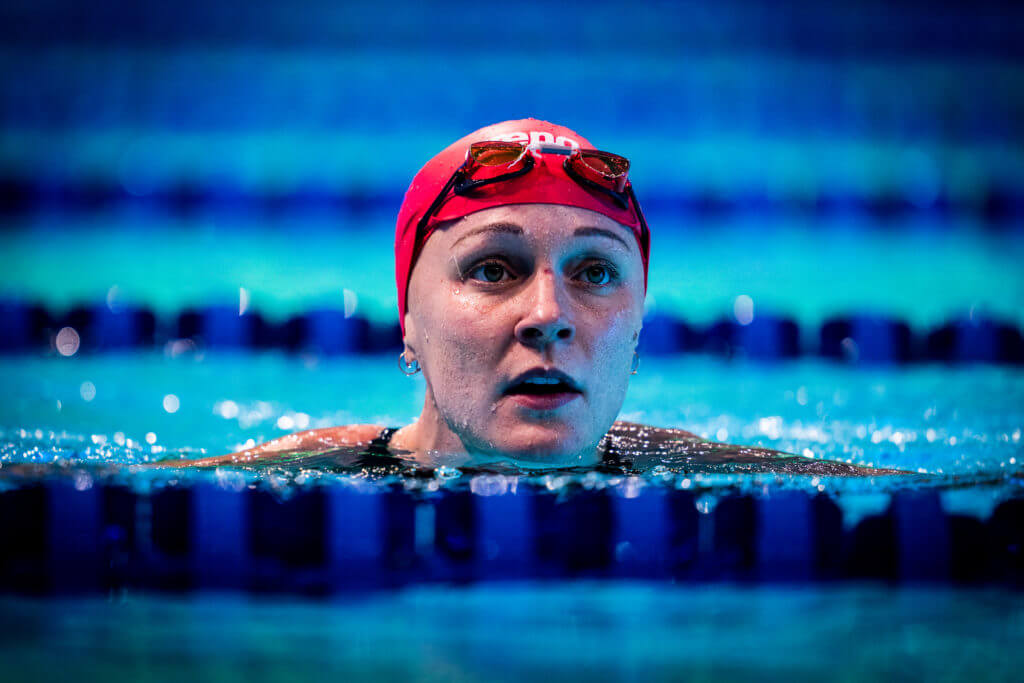
5 Uncertain International-Athlete Storylines as Olympic Games Approach
In a normal Olympic year, plenty of questions arise concerning athlete preparation and whether specific individuals will peak at the most-important point in the season. Of course, with the COVID-19 pandemic wreaking havoc around the world, additional uncertainties have dotted the Olympic landscape over the past year.
In recent days, many headlines around the world have focused on the status of the Olympic Games in Tokyo. While the Japanese government and International Olympic Committee have repeatedly vowed the Games can be held in a safe manner, other voices – including Japanese citizens – have called for the Olympics to be cancelled.
The countdown to Tokyo 2020 is now under two months, and several big names around the world have produced performances that suggest their prep for Tokyo is proceeding nicely. Take Kaylee McKeown, for example. The Australian recently just missed the world record in the 100-meter backstroke, in addition to delivering superb showings in the 200 backstroke and 200 individual medley.
For others, questions remain. Here is a look at six major names in the sport whose impact come Tokyo features a level of uncertainty.
Mack Horton
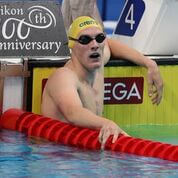
Photo Courtesy:
Historically, the reigning Olympic champion in the 400 freestyle is known for dropping large chunks of time in major competition. This year, however, he has not put forth any results that assuage doubt related to what he will do at the upcoming Australian Olympic Trials in Adelaide. While it wouldn’t be surprising if Horton, a leading voice for clean sport, flourished when it counts, he will have his hands full domestically with the likes of Elijah Winnington and Jack McLoughlin.
Additionally, Horton was dealt a disruption to his training in the past week when he was forced to exit his Melbourne base due to a rise in COVID-19 cases in Victoria. By shifting to the Gold Coast, Horton avoided being stuck in Melbourne at the time of Trials.
Katinka Hosszu
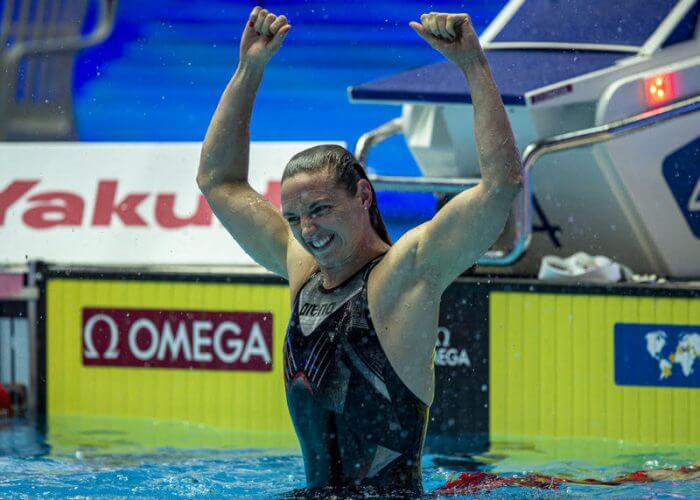
Katinka Hosszu celebrates her 400 IM victory at the 2019 World Championships; Photo Courtesy: PATRICK B. KRAEMER
Heading into the 2016 Olympic Games, the Hungarian star was on a roll. It wasn’t a question of whether she would strike gold in Rio, but how many times. Ultimately, she claimed Olympic titles in both medley events and the 100 backstroke, with a silver medal added in the 200 backstroke. This Olympic cycle has been much different.
Hosszu has not been the Iron Lady in the leadup to Tokyo and defense of her medley crowns will be a difficult task. At the recent European Championships, Hosszu won gold in the 400 medley, but was limited to bronze in the 200 medley. It is possible that her best will come in Tokyo, but this Olympiad brings a different look than five years ago. It is worth noting that Hosszu’s best in the 400 medley provides such a cushion over the competition that she remains a leading contender in that event while off her peak.
Sarah Sjostrom
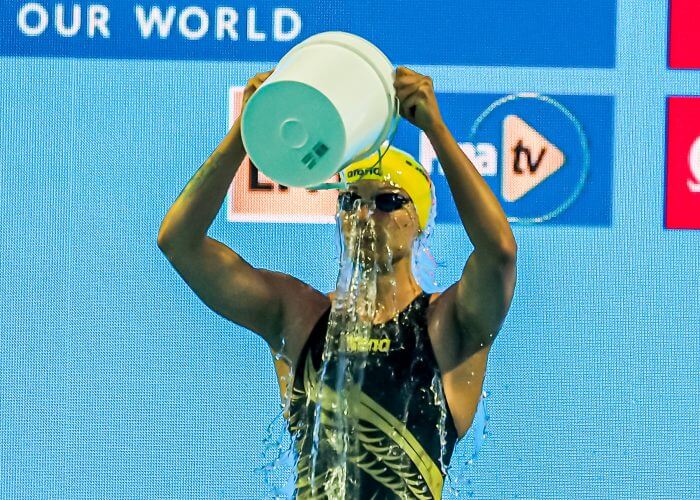
Sarah Sjostrom – Photo Courtesy: Peter H. Bick
The tale of the Swedish standout is one that shows how unfair sports can be. On the road to Tokyo, Sjostrom was dealt a major blow earlier this year when she slipped on ice and suffered a broken elbow that required surgery. Although Sjostrom has been in the water, her buildup to past work has been a gradual process, with butterfly work just recently added to her program.
The reigning Olympic champ in the 100 butterfly might not even be able to defend her gold medal in that event, with a decision on that possibility coming at a later date. As for the sprint-freestyle events, in which Sjostrom is the world-record holder, will she be recovered enough and have the proper preparation to battle with the world’s elite?
Yuliya Efimova
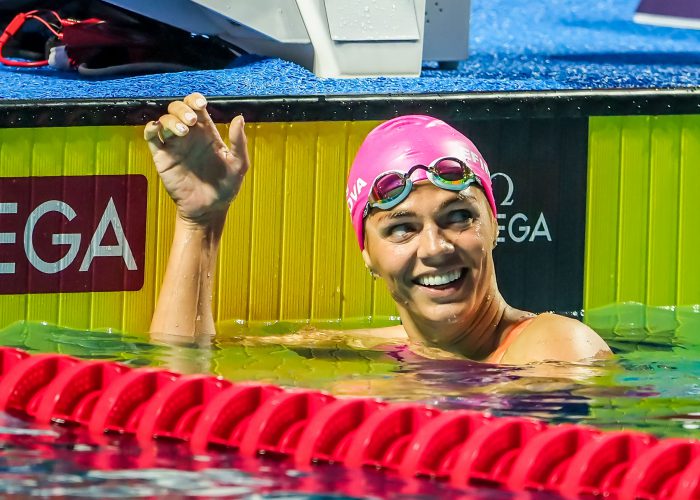
Photo Courtesy: Peter H. Bick
The Russian breaststroker has already had her Tokyo program shortened by her inability to qualify at the Russian Trials in the 200 breaststroke. Consequently, Efimova is solely focused on the 100 breaststroke, where she will likely engage in another chapter of her rivalry with American and world-record holder Lilly King.
Is it possible that Efimova will benefit from not racing both the 100 breaststroke and 200 breaststroke in Tokyo? With greater focus on the shorter event, maybe Efimova will be better suited for the event, in which she was the 2016 Olympic silver medalist.
Kosuke Hagino
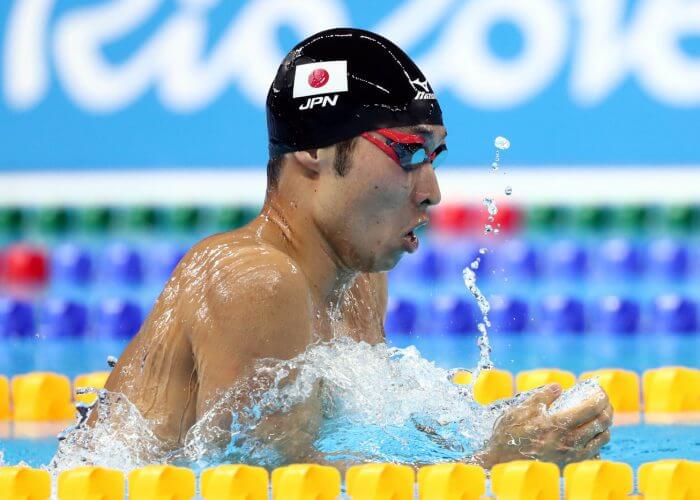
Photo Courtesy: Erich Schlegel-USA TODAY Sports
There will be no defense of the Japanese star’s 400 medley title from Rio, as Hagino opted out of the event to focus on the 200 individual medley. It has been anything but a smooth Olympic cycle for Hagino, who took time away from the sport to deal with mental-health issues. Just seeing him back in the water and on the Japanese Olympic roster is a bonus.
The silver medalist from Rio in the 200 medley, Hagino will face a stacked field in Tokyo, including dealing with countryman Daiya Seto. Hagino has been 1:57.43 this year, but he will need to be considerably faster to contend for the podium for a second consecutive Games.




Hosszu’s 4:34.76 in 400IM shown at recent European Championships is no match to what she showed in similar meet in 2016 (4:30.90).
Yes, with this result she got #1 spot in world ranking this season but with very small margin. And there is no evidence that she will be more successful with tapering than her main opponents. Why? She was most likely specially prepared for these Championships that was held in her country and it meant much to her to perform exceptionally well there. So the great form was expected. Nevertheless she finished the race with the great difficulty losing more than one second at last 50m to the swimmer who was second in this race. I don’t see any signs indicating that she will be in better form in two months in Tokyo.